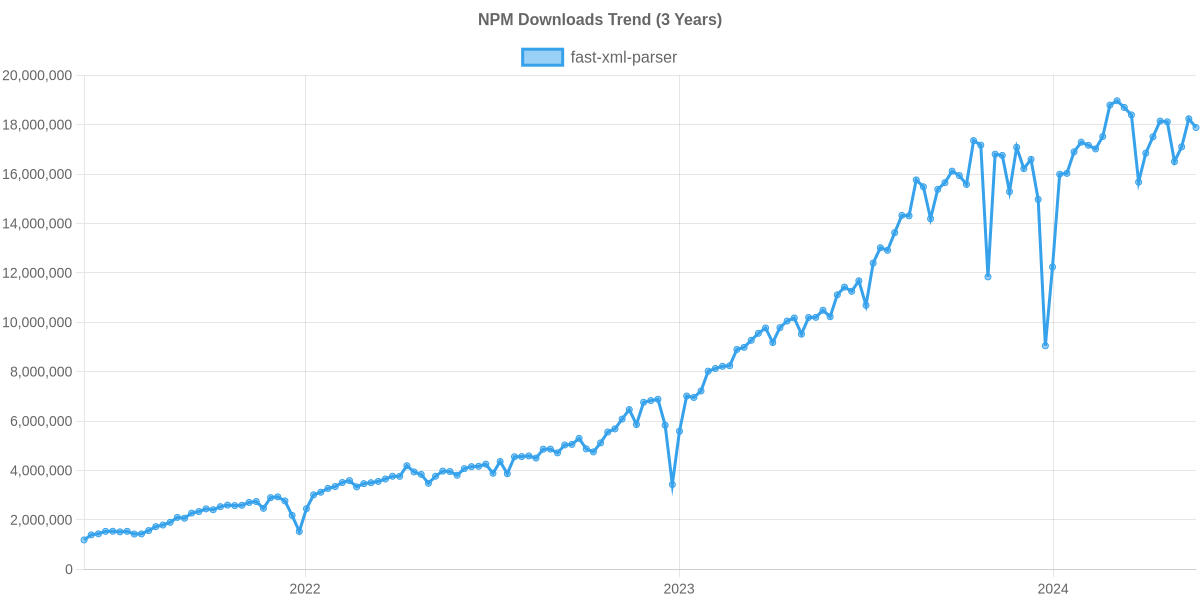Performance
- fast-xml-parser:
fast-xml-parser is designed for high performance and can parse large XML documents quickly. It minimizes memory usage and optimizes parsing speed, making it suitable for applications that require fast processing of XML data.
- xml-js:
xml-js offers a balanced performance, but it may not be as fast as fast-xml-parser for very large XML files. However, it provides a good compromise between speed and the ability to maintain the structure of the XML during conversion.
- xml2json:
xml2json is generally slower than the other two libraries, especially with larger XML files. However, it is still efficient for most use cases and is well-optimized for standard XML parsing tasks.
Ease of Use
- fast-xml-parser:
fast-xml-parser has a simple and intuitive API that makes it easy to get started. It requires minimal configuration and provides clear documentation, making it accessible for developers of all skill levels.
- xml-js:
xml-js is user-friendly and straightforward to use, with clear methods for converting XML to JSON and vice versa. Its API is designed to be easy to understand, which helps reduce the learning curve for new users.
- xml2json:
xml2json is also easy to use, with a clear and concise API. It is well-documented, which aids developers in quickly implementing XML parsing in their applications.
Customization
- fast-xml-parser:
fast-xml-parser allows for various customization options during parsing, including the ability to define how attributes and text nodes are handled. This flexibility makes it suitable for applications with specific requirements regarding XML structure.
- xml-js:
xml-js provides options for customizing the output format, allowing developers to choose how they want their JSON to be structured. This is particularly useful when dealing with complex XML documents that require specific handling.
- xml2json:
xml2json offers limited customization compared to the other two libraries. It primarily focuses on straightforward conversion, which may not suit all use cases where specific output formats are needed.
Error Handling
- fast-xml-parser:
fast-xml-parser includes robust error handling capabilities, providing clear error messages when parsing fails. This feature is crucial for debugging and ensuring data integrity during XML processing.
- xml-js:
xml-js has basic error handling, but it may not provide as detailed feedback as fast-xml-parser. It is still sufficient for most use cases, but developers should be aware of potential limitations.
- xml2json:
xml2json offers basic error handling, which may not be as comprehensive as the other libraries. Developers might need to implement additional checks to ensure XML validity before parsing.
Community and Support
- fast-xml-parser:
fast-xml-parser has a growing community and active maintenance, ensuring that developers can find support and updates regularly. Its popularity is increasing due to its performance benefits.
- xml-js:
xml-js has a stable user base and is well-maintained, providing good community support. It is widely used in various projects, which helps in finding solutions to common issues.
- xml2json:
xml2json is a well-established library with a long history in the JavaScript ecosystem. It has a large community and extensive documentation, making it easy to find help and resources.












 * Y-axis: requests per second
* Y-axis: requests per second

